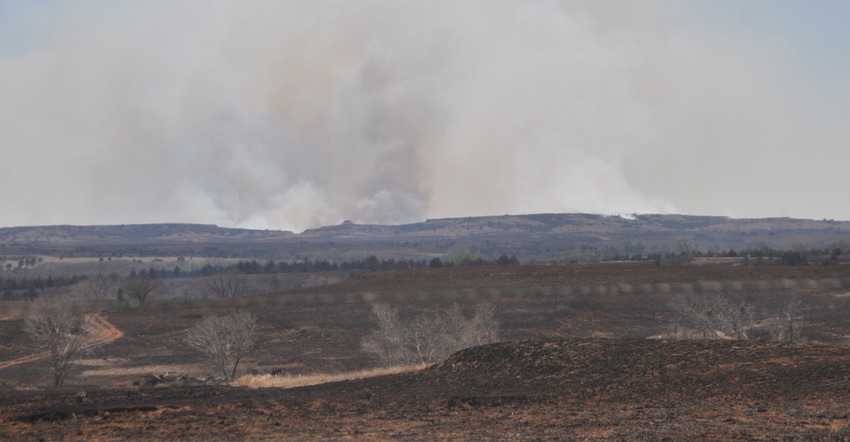December 13, 2018

Members of the Kansas Livestock Association approved policy addressing property taxes, wildfire suppression, animal traceability and other issues during the group’s annual business meeting Nov. 30 in Wichita. KLA members drive the policy process, starting with regional roundtable discussions around the state in November, followed by committee and council meetings, and concluding with approval during the general membership meeting at the annual convention.
“Input from individual KLA members is the basis for resolutions that guide the association officers and staff as we work through issues affecting livestock producers,” said KLA President Barb Downey, a rancher from Wamego. “KLA leadership essentially takes these member priorities and puts them into action.”
Members approved a new resolution supporting a Kansas constitutional amendment that would ensure state legislators have sole authority to appropriate the total amount of funds for K-12 education. It also specifies the judiciary should retain authority to review whether K-12 education funding appropriated by the state Legislature is equitably distributed among school districts.
In response to the state’s two largest wildfires in the last 50 years occurring in 2016 and 2017, KLA members passed another new resolution supporting increased state funding for wildfire suppression.
Property rights are always on the minds of livestock producers and landowners. Members approved a new resolution urging local and state law enforcement officials to actively enforce state trespassing laws along navigable streams in Kansas.
KLA members amended a resolution to support continued state and federal funding for the CattleTrace disease traceability pilot project. CattleTrace, which started in the fall of 2018, meets member policy criteria that any disease traceability program minimizes the costs to producers; optimizes the role of the private sector in administration; and protects the confidentiality of individual animal owner records.
Another amended resolution opposes the introduction of a federal regulation similar to the 2010 Grain Inspection, Packers and Stockyards Administration provision restricting certain types of livestock marketing.
Amended KLA policy strongly supports ratification of the U.S.-Mexico-Canada Trade Agreement. Congressional approval of the agreement is important because U.S. beef exports to Canada and Mexico combined are nearly $2 billion per year.
The membership chose to retain a resolution supporting an exemption for livestock haulers from electronic logging device requirements while modifications to hours-of-service regulations are under consideration. KLA supports hours-of-service changes that would protect animal welfare and prevent excessive freight cost increases.
Members chose to reaffirm a resolution supporting the Beef Industry Long Range Plan. The vision of the plan is “to responsibly produce the most trusted and preferred protein in the world.”
A resolution on the beef checkoff was updated to show continued support for the industry’s self-help program, which was supported by 74% of producers on the most recent survey. KLA supports an increase in the beef checkoff assessment rate to adequately fund beef demand programs partially due to a Cornell University study showing between 2006 and 2013, every $1 invested in the checkoff returned $11.20 to the industry.
The KLA resolution on immigration was reaffirmed. It opposes state legislation that would enact more restrictive immigration policies than exist under federal law. The resolution also supports federal immigration policy that would allow for an efficient and adequate guest worker program.
In all, KLA members approved 62 resolutions for 2019. Other issues addressed in KLA policy include prescribed burning, fake meat regulation, noxious weed control and deer population management.
KLA is a 5,600-member trade organization representing the state’s livestock business on legislative, regulatory and industry issues at both the state and federal levels. The association’s work is funded through voluntary dues dollars paid by its members.
Source: Kansas Livestock Association
You May Also Like




